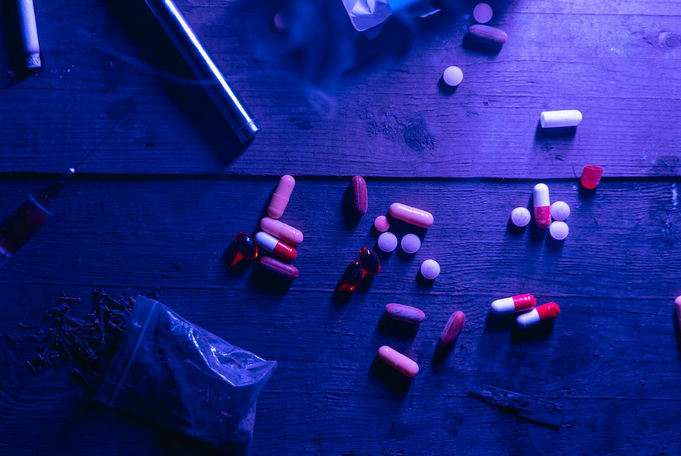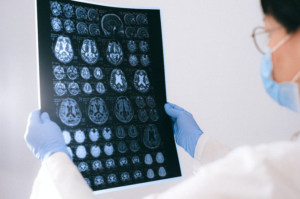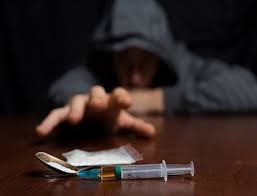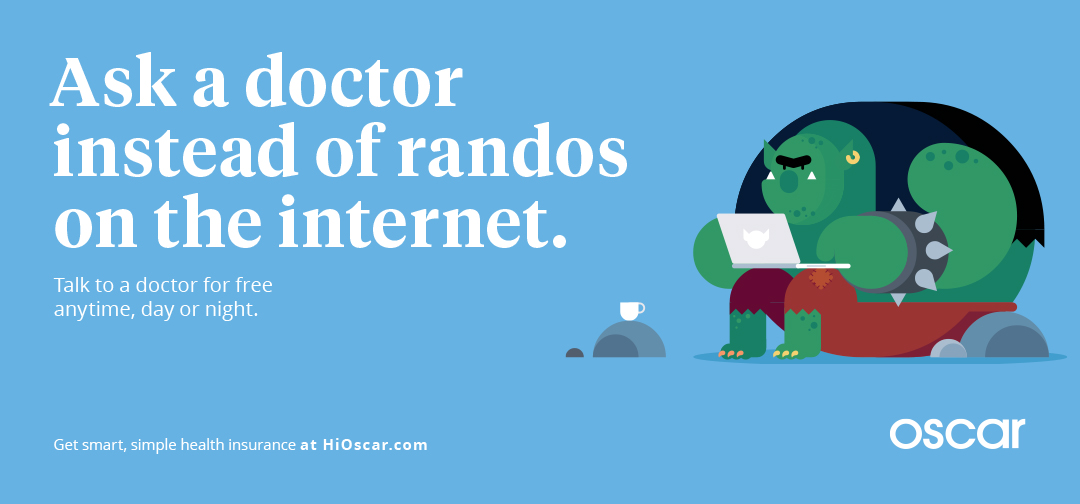
Understanding the Common Health Impacts of Drug Addiction
Drug addiction is a complex and devastating disease that not only affects a person’s behavior and relationships but also takes a significant toll on their physical and mental health. From damage to vital organs to increased risk of infectious diseases, the health impacts of drug addiction are far-reaching and often severe. In this article, we’ll explore some of the expected health consequences of drug addiction, shedding light on the importance of seeking help and treatment for those struggling with substance abuse.
Damage to the Brain

Drug addiction can cause profound changes in the structure and function of the brain, leading to cognitive impairment, memory loss, and difficulty with decision-making and impulse control. Prolonged drug use can alter neurotransmitter levels and disrupt communication between brain cells, resulting in long-term changes that contribute to addiction and make it challenging to stop using drugs.
Cardiovascular Complications
Many drugs, including stimulants like cocaine and methamphetamine, can have serious effects on the cardiovascular system, increasing the risk of heart attack, stroke, and other cardiovascular complications. Drug use can elevate blood pressure, disrupt heart rhythm, and damage blood vessels, putting individuals at greater risk of life-threatening cardiovascular events.
Respiratory Problems

Certain drugs, such as opioids and heroin, can suppress respiratory function, leading to breathing difficulties, respiratory infections, and even respiratory failure. Chronic use of these substances can damage the lungs and respiratory system, increasing the risk of conditions like pneumonia and chronic obstructive pulmonary disease (COPD).
Liver Damage and Hepatitis
The liver plays a crucial role in metabolizing and detoxifying drugs from the body, but chronic drug abuse can overwhelm the liver’s capacity, leading to liver damage, inflammation, and disease. Injection drug use also increases the risk of contracting viral hepatitis, a severe liver infection that can cause long-term complications if left untreated.
Increased Risk of Infectious Diseases
Sharing needles or engaging in dangerous drug-related activities increases the chance of developing infectious illnesses, including HIV/AIDS, hepatitis B and C, and sexually transmitted infections (STIs). These disorders can have major consequences for health and well-being, necessitating lifetime monitoring and treatment.
Mental Health Disorders

Drug addiction often co-occurs with mental health disorders such as depression, anxiety, and post-traumatic stress disorder (PTSD). Substance abuse can exacerbate symptoms of these disorders and make them more challenging to treat, leading to a cycle of self-medication and worsening mental health.
The health impacts of drug addiction are profound and wide-ranging, affecting nearly every system of the body and contributing to a range of physical and mental health problems. From damage to vital organs to increased risk of infectious diseases and mental health disorders, the consequences of drug addiction can be devastating. However, with appropriate treatment, support, and resources, individuals struggling with substance abuse can take steps toward recovery and reclaim their health and well-being. It’s essential to recognize the signs of addiction, seek help when needed, and work towards a life free from the harmful effects of drugs.…

Four Phases in Porn Addiction According to Clinical Psychologists
Are you aware of the powerful grip that pornography can have on people’s lives? It may start innocently enough, with a casual curiosity or an attempt to explore one’s own desires. But before you know it, what began as a harmless fascination can slowly morph into something much more insidious – an addiction. There will be lots of porn withdrawl symptoms, but it’s better than trapping yourself in the darkness of porn addiction. According to clinical psychologists, porn addiction follows a distinct pattern with four phases: Addiction, Escalation, Desensitization, and Acting Out. Those are what we’re going to delve into while shedding light on the challenges faced by those struggling with this pervasive issue.
Addiction: The Beginning
 Addiction, the first phase in the cycle of porn addiction, is where it all begins. It typically starts innocently enough – a casual encounter with explicit material that piques one’s curiosity or provides an escape from reality. However, what may seem like harmless exploration can quickly spiral out of control as the brain becomes hooked on the dopamine rush that accompanies viewing pornography. As time goes on, individuals find themselves craving more and more intense content to achieve the same level of satisfaction. They become consumed by their need for sexual stimulation and may even start neglecting other aspects of their life – relationships, work, hobbies – in favor of indulging in their addictive behavior.
Addiction, the first phase in the cycle of porn addiction, is where it all begins. It typically starts innocently enough – a casual encounter with explicit material that piques one’s curiosity or provides an escape from reality. However, what may seem like harmless exploration can quickly spiral out of control as the brain becomes hooked on the dopamine rush that accompanies viewing pornography. As time goes on, individuals find themselves craving more and more intense content to achieve the same level of satisfaction. They become consumed by their need for sexual stimulation and may even start neglecting other aspects of their life – relationships, work, hobbies – in favor of indulging in their addictive behavior.
Escalation: A Dangerous Spiral
This second phase refers to the increasing need for more explicit and extreme forms of pornography to achieve the same level of arousal and satisfaction. It’s a dangerous spiral that can lead individuals down a path they never intended to take. At first, viewing mild or mainstream pornography may be enough to satisfy cravings. However, over time, this becomes less stimulating, and individuals find themselves searching for more intense material. They may start exploring genres they would have never considered before or seeking out taboo content that goes against their own values. The problem with escalation is that it can quickly become addictive behavior, impacting their perception of healthy sexual relationships. Furthermore, escalation often leads to increased isolation and secrecy.
Desensitization
Desensitization is a phase in porn addiction that occurs when an individual becomes less responsive to the material they are consuming. At first, a person may find certain types of pornography stimulating and exciting. However, over time, constant exposure can lead to desensitization. During this phase, individuals often seek out more extreme or taboo content to get the same level of arousal. As desensitization progresses, users may find themselves exploring fetishes or genres that were previously unappealing or even repulsive. The need for novelty and intensity drives them further down the rabbit hole of explicit material. It may become difficult for those struggling with porn addiction to feel satisfied with real-world intimacy because their expectations have been skewed by unrealistic depictions portrayed in pornography.
Acting Out
 Acting Out is the final phase in the progression of porn addiction, and it can be one of the most destructive. At this stage, individuals may find themselves engaging in risky behavior that they would have never considered before. The addictive nature of pornography has driven them to seek out more extreme forms of sexual gratification. In an attempt to satisfy their cravings, individuals may start acting out fantasies or fetishes that were once purely confined to their imagination. They may engage in unsafe sexual practices. They can even participate in activities that are illegal or harmful to themselves and others.
Acting Out is the final phase in the progression of porn addiction, and it can be one of the most destructive. At this stage, individuals may find themselves engaging in risky behavior that they would have never considered before. The addictive nature of pornography has driven them to seek out more extreme forms of sexual gratification. In an attempt to satisfy their cravings, individuals may start acting out fantasies or fetishes that were once purely confined to their imagination. They may engage in unsafe sexual practices. They can even participate in activities that are illegal or harmful to themselves and others.
The consequences of acting out can be severe. Relationships suffer as trust is broken and boundaries are crossed. Careers can be jeopardized due to poor judgment and impaired decision-making skills. On a personal level, guilt, shame, and self-loathing often accompany these actions. Recognizing these phases can be instrumental in seeking help and support before it reaches a critical stage where recovery becomes even more challenging. Therapy with trained professionals specializing in sexual addictions can provide invaluable guidance and strategies for navigating each phase effectively.…

How Drug Abuse Leads to the Degradation of Neuron Cells
Neuron cells are essential for human survival. They relay messages between the brain and the body, allowing us to move, think, and feel. When neuron cells are damaged or destroyed, it can lead to serious health problems. If your body gets exposed to drugs, like heroin or meth, your neuron cells start to degrade. This leads to all sorts of issues. Rehabs New Zealand has professionals that can help you detox from the drug residues in your body. Today, let’s talk about how drug abuse leads to the degradation of neuron cells. We will also explore ways to prevent this from happening.
Drugs Can Slow the Neuron Activity Down
 Drug abuse has a direct effect on neuron cells. It can slow down the activity of these cells, making it harder for messages to be sent and received between the brain and the body. This is especially true with drugs like heroin or cocaine, which act as stimulants in the body. The neurons struggle to absorb and release chemicals when influenced by these drugs. This slows down their ability to send messages quickly, decreasing mental clarity and proper functioning.
Drug abuse has a direct effect on neuron cells. It can slow down the activity of these cells, making it harder for messages to be sent and received between the brain and the body. This is especially true with drugs like heroin or cocaine, which act as stimulants in the body. The neurons struggle to absorb and release chemicals when influenced by these drugs. This slows down their ability to send messages quickly, decreasing mental clarity and proper functioning.
Drug Abuse Leads to Damage of Neuron Cells
Another way drug abuse affects neuron cells is by damaging them directly. Drugs like alcohol can cause direct damage to the neurons, making it more difficult for them to perform their essential functions. This can lead to health problems, such as memory loss, confusion, and seizures. Additionally, prolonged drug abuse can cause permanent damage to neuron cells. This means that the effects of drug abuse may last long after you have stopped taking the drugs.
Drug Abuse Can Permanently Change the Brain’s Structure and Function
 Yet another way drug abuse can affect neuron cells is by changing the structure and function of the brain. Drugs like heroin or cocaine can cause abnormal levels of neurotransmitters in the brain and changes to how certain receptors work.
Yet another way drug abuse can affect neuron cells is by changing the structure and function of the brain. Drugs like heroin or cocaine can cause abnormal levels of neurotransmitters in the brain and changes to how certain receptors work.
This means that even after you stop using drugs, your brain will continue to be altered from its original state. This can lead to long-term effects, such as impaired cognitive function, personality changes, and even dementia.
Drug Abuse Affects How Neuron Cells Communicate
Finally, drug abuse can also lead to a degradation of neuron cells by affecting how they communicate with each other. Drugs like Ecstasy can cause changes in the way information is sent and received between neurons, resulting in slower communication speed and decreased accuracy. Additionally, drugs like cocaine can impair the ability of neurons to make new connections or pathways. This means that connections between neurons can be lost, causing long-term changes in how the brain functions.
The best way to prevent drug abuse from leading to neuron cell degradation is to avoid using drugs altogether. If you are already using drugs, then seek help from a professional. Rehab centers in New Zealand can provide the necessary treatment and support to get clean and stay clean. Additionally, lifestyle changes such as avoiding triggers and developing healthy habits can help prevent neuron cell degradation caused by drug abuse.…

Understanding Different Types of Addiction
Addiction can manifest in different forms. The common types of addiction are drug-related. However, we have other types of addiction that are challenging to spot and they are not seen as addiction in the mainstream.
The truth is that if you are experiencing something that you cannot control then you need to know that you are dealing with a condition. Getting help as early as possible allows you to live a productive and healthy life. Here is a list to help you understand different types of addiction:
Drug and Substance Abuse
 Drug and substance abuse is probably the most common type of addiction. This happens when the person is fully dependent on alcohol and any other type of dry. This type of addiction is considered genetic because some people have genes that are prone to alcoholism.
Drug and substance abuse is probably the most common type of addiction. This happens when the person is fully dependent on alcohol and any other type of dry. This type of addiction is considered genetic because some people have genes that are prone to alcoholism.
You will notice that this type of addiction is common with hard drugs and it needs to be treated as fast as possible. Drug and substance abuse addiction can affect health, waste money, and also affects the quality of life.
Food Addiction
Food addiction is considered any form of obsessive behavior towards food. Many people might refer to it as a food disorder. You will notice that people with food addiction eat a large amount of food and they cannot stop.
In the other extreme cases, they might have emotional outbursts towards eating. Food addiction might be challenging to identify but it is definitely a form of addiction.
Gambling Addiction
 Gambling addiction is also a form of addiction that many people struggle with. This form of addiction involves spending many hours gambling and spending a lot of money.
Gambling addiction is also a form of addiction that many people struggle with. This form of addiction involves spending many hours gambling and spending a lot of money.
Unlike in the past, we now have internet gambling and this has made the addiction evolve. Gambling addiction is now a little bit complicated to diagnose but it affects your life and money then it needs to be addressed.
Sex Addiction
Sex addiction is the most undiagnosed form of addiction. Many people are not open to admitting it and even seeking help. It involves chasing that reward by having sex compulsively. In most cases, sex addiction will often affect relationships.
If the person is in a romantic relationship then it will affect the relationship with their significant other. This form of addiction needs to be treated so that the person can improve their social life and therapy is one of the forms of treating it.…




